125 have author last names that start with R have author last names that start with R


Washington Irving's Contributions to the Corrector was first published in 1968. Minnesota Archive Editions uses digital technology to make long-unavailable books once again accessible, and are published unaltered from the original University of Minnesota Press editions.
This volume makes available, for the first time in collected form, a series of sketches by Washington Irving which were published anonymously in a political newspaper, The Corrector, in 1804. The Corrector, a short-lived political sheet, was published in New York City by Washington Irving's brother Peter Irving. While it has been assumed that Washington Irving contributed to the periodical, the present collection represents the first attempt to identify his contributions.
The collection contains forty-five pieces by Washington Irving. In addition, Professor Roth provides a literary and historical background in a lengthy introduction, as well as annotations for each selection, giving the documentary evidence on which the attribution of authorship is based.
Washington Irving's sketches for The Corrector were written as campaign literature for Aaron Burr in the New York gubernatorial election of 1804. As Professor Roth points out, they are filled with low and indecent abuse, and they contradict accepted notions of Irving's literary character. The view of Irving from the nineteenth century onward has been that of a gentle, genial, and dignified personality, and his excursions in low invective or slapstick have generally been dismissed as accidents or exceptions to his read nature. The editor places this body of Irving's work in the perspective of traditional invective and traces its relationship to other comic and satiric writing of the eighteenth century.
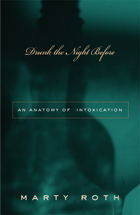
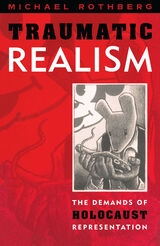

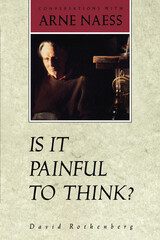
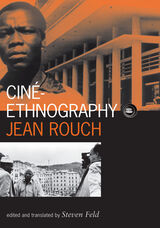

Saul Bellow - American Writers 65 was first published in 1967. Minnesota Archive Editions uses digital technology to make long-unavailable books once again accessible, and are published unaltered from the original University of Minnesota Press editions.

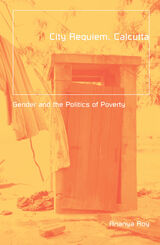
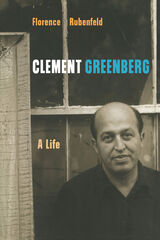
The only book-length biography of this controversial critic, now in paperback for the first time!
Love him or hate him, admire him or revile him, there is no doubt that Clement Greenberg was the most influential critic of modern art in the second half of the twentieth century. His championing of abstract expressionist painters such as Jackson Pollock, Barnett Newman, and David Smith put the United States on the international art map. His support for color-field painters Morris Louis and Kenneth Noland dramatically accelerated their careers. The intellectual power of his polemical essays helped bring about the midcentury shift in which New York replaced Paris as the art capital of the Western world; his aggressive personality and fierce involvement in the New York art scene triggered a backlash so potent that one critic termed it a “patricide.”
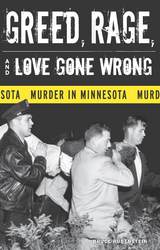

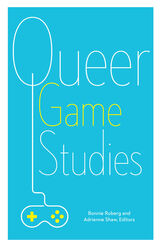
Video games have developed into a rich, growing field at many top universities, but they have rarely been considered from a queer perspective. Immersion in new worlds, video games seem to offer the perfect opportunity to explore the alterity that queer culture longs for, but often sexism and discrimination in gamer culture steal the spotlight. Queer Game Studies provides a welcome corrective, revealing the capacious albeit underappreciated communities that are making, playing, and studying queer games.
These in-depth, diverse, and accessible essays use queerness to challenge the ideas that have dominated gaming discussions. Demonstrating the centrality of LGBTQ issues to the gamer world, they establish an alternative lens for examining this increasingly important culture. Queer Game Studies covers important subjects such as the representation of queer bodies, the casual misogyny prevalent in video games, the need for greater diversity in gamer culture, and reading popular games like Bayonetta, Mass Effect, and Metal Gear Solid from a queer perspective.
Perfect for both everyday readers and instructors looking to add diversity to their courses, Queer Game Studies is the ideal introduction to the vast and vibrant realm of queer gaming.
Contributors: Leigh Alexander; Gregory L. Bagnall, U of Rhode Island; Hanna Brady; Mattie Brice; Derek Burrill, U of California, Riverside; Edmond Y. Chang, U of Oregon; Naomi M. Clark; Katherine Cross, CUNY; Kim d’Amazing, Royal Melbourne Institute of Technology; Aubrey Gabel, U of California, Berkeley; Christopher Goetz, U of Iowa; Jack Halberstam, U of Southern California; Todd Harper, U of Baltimore; Larissa Hjorth, Royal Melbourne Institute of Technology; Chelsea Howe; Jesper Juul, Royal Danish Academy of Fine Arts; merritt kopas; Colleen Macklin, Parsons School of Design; Amanda Phillips, Georgetown U; Gabriela T. Richard, Pennsylvania State U; Toni Rocca; Sarah Schoemann, Georgia Institute of Technology; Kathryn Bond Stockton, U of Utah; Zoya Street, U of Lancaster; Peter Wonica; Robert Yang, Parsons School of Design; Jordan Youngblood, Eastern Connecticut State U.
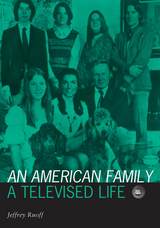

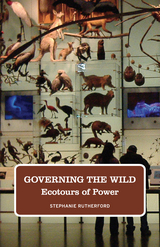
Take four emblematic American scenes: the Hall of Biodiversity at the American Museum of Natural History in New York; Disney’s Animal Kingdom theme park in Orlando; an ecotour of Yellowstone and Grand Teton National Parks; the film An Inconvenient Truth. Other than expressing a common interest in the environment, they seem quite dissimilar.
And yet, as Governing the Wild makes clear, these sites are all manifestations of green governmentality, each seeking to define and regulate our understanding, experience, and treatment of nature. Stephanie Rutherford shows how the museum presents a scientized assessment of global nature under threat; the Animal Kingdom demonstrates that a corporation can successfully organize a biopolitical project; the ecotour, operating as a school for a natural aesthetic sensibility, provides a visual grammar of pristine national nature; and the film offers a toehold on a moral way of encountering nature. But one very powerful force unites the disparate “truths” of nature produced through these sites, and that, Rutherford tells us, is their debt to nature’s commodification.
Rutherford’s analysis reveals how each site integrates nature, power, and profit to make the buying and selling of nature critical to our understanding and rescuing of it. The combination, she argues, renders other ways of encountering nature—particularly more radically environmental ways—unthinkable.
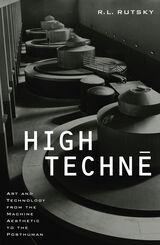

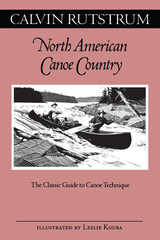

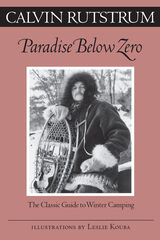

An indispensable resource for navigating the wild.
In the days before cell phones and global positioning systems, knowing how to find your own way in the wilderness was a vitally important skill. The Wilderness Route Finder, first published in 1967, was the popular resource for anyone venturing into the woods who wanted to find their way out again. Now this essential book is available once more in a handy paperback edition.
As more and more people seek to simplify their wilderness experiences and return to traditional camping methods, Rutstrum’s simple, straightforward, and dependable methods can be appreciated anew. Rutstrum focuses on the tried-and-true techniques that have served wilderness travelers for generations: how to use a map, a compass, a sextant, and the sun and stars. He explains why we sometimes get lost and what we should do when we are. This is a valuable traveling companion for anyone wishing to hunt, fish, explore, camp, or simply walk through unfamiliar territory.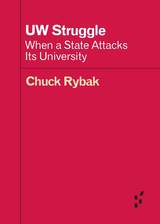
A Wisconsin story that serves as a national warning
UW Struggle provides an on-the-ground view of the smoldering attack on public higher education in Wisconsin. Chuck Rybak, who works in the University of Wisconsin System, provides important glimpses into the personal lives of those affected, the dismantling of tenure protections, the diminishment of shared governance, and how faculty remain the scapegoat for all of the university’s problems. This is a chronicle of failed leadership and what actions, if any, can protect this vital American institution.

READERS
Browse our collection.
PUBLISHERS
See BiblioVault's publisher services.
STUDENT SERVICES
Files for college accessibility offices.
UChicago Accessibility Resources
home | accessibility | search | about | contact us
BiblioVault ® 2001 - 2024
The University of Chicago Press









